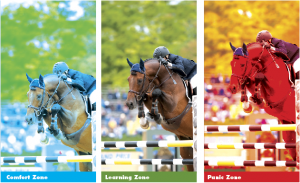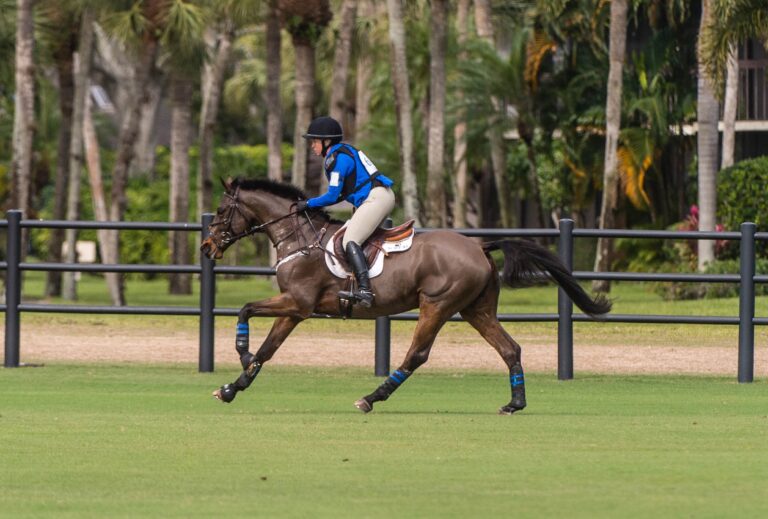I have said it before, and I will say it again: “Practice does not make perfect; perfect practice makes perfect.” That has ?always been my favorite teaching aphorism, and I use it ?often. (See my September 2009 column, “Winning Beats Losing Every Time.”) However, I did not know how right I was until recently.
I had basically overdosed on riding theory and needed some new reading material that was not directly horse-related. Fortunately, I discovered Outliers by Malcolm Gladwell (hereafter Gladwell), Talent Is Overrated by Geoff Colvin (hereafter Colvin) and a groundbreaking scientific study, “The Role of Deliberate Practice in the Acquisition of Expert Performance,” conducted by K. Anders Ericsson, Ralf T. Krampe and Clemens Tesch-R?mer, all from Florida State University (hereafter Ericsson et al).
My day job is helping horses and riders to maximize their potential, and I am interested in anything that can help me to help them. All these works resonated with me, and I want to share some of the things I learned from them.
Bad News, Good News
First, let’s get the bad news out of the way: If you don’t work at your riding, you are not going to get any better. Simple as that. However, I prefer to think of it positively: If you work hard, you can get better. How much better you get is up to you. I am not going to lie; you are not going to be wearing a new Rolex any time soon if you think practicing just a little more often and just a little smarter is all it will take to propel you to stardom. What I can tell you is that we now have a much better idea of what it takes to improve performance. What modern scientists have found out about elite performers may surprise you.
The money quote for me in Ericsson et al was, “The differences between expert performers and normal adults reflect a lifelong period of deliberate effort to improve performance in a specific domain.” When you distill the scientific jargon into everyday English, these authors are saying the harder you work, the better you get, if you remember to work harder at getting better. In all this scientific information, you cannot lose sight of the central fact: Hard work (effort) alone is not enough. You must combine hard work with smart work (deliberate practice), if you truly want to become an expert.
Gladwell famously writes about the concept of 10,000 hours of practice necessary to acquire mastery in any discipline, and Colvin notes that no one becomes “great without at least ten years of very hard preparation.” Colvin goes on to speak of three “zones” of learning?the comfort zone, the learning zone and the panic zone. Briefly, we all know where our comfort zone is in the saddle. For example, you have been jumping 3-foot obstacles for long enough to feel comfortable. When your coach raises the jump to 3-foot-3, you enter your learning zone, because you still are capable, but you are no longer as competent as you were a moment ago. And if you suddenly raise the jump to 4 feet ? panic! Your horse might jump 4 feet easily, but it is too far outside your learning zone for it to be beneficial for you to attempt. A good coach can keep you at the upper limits of your learning zone on a continual basis.
Knowledge + Practice = Improvement
All this scientific stuff is great, but how ?exactly does it apply to us? First, it identifies the main factor for success: hard work, or what the scientists call “deliberate practice.” This is important because there are seemingly so many things that stand between where we are now and where we would like to be in five years. Horse sports are twice as difficult as other sports because there are two of you, and your four-legged friend is expensive. This means you are probably going to have to work to support your habit, and it means you will need to be very disciplined about your life if you want to fit in a job in the real world with your dreams.
 In his book, Talent Is Overrated, Geoff Colvin, senior editor at large at Fortune magazine, speaks about three
In his book, Talent Is Overrated, Geoff Colvin, senior editor at large at Fortune magazine, speaks about threeOK, so now what? Now we get to work. But before we start, we need to revisit riding theory. I have always maintained that practice without knowledge is merely exercise, and I am in good company in thinking this. In 1733, Fran?ois Robichon de la Gu?rini?re, inventor of the shoulder-in, flying change and counter-canter, said, “Without theory, the practice will always be uncertain.” Modern performance scientists refer to this as “domain knowledge,” meaning knowledge of your field of study, whether in business, art or sport. Basically, the more you know, the better you are going to be. The increasing use of video and widespread availability (both online and in print) of training articles makes more information available to more and more people, yet many fail to put this knowledge to work.
In sum: It is not enough just to ride every day. You need to know enough to be able to analyze your riding and to ?develop plans to improve it. This is where Colvin’s theory of deliberate practice comes into play. He defines deliberate practice this way:
- It is activity designed specifically to improve performance. This is not as complicated as it sounds. For example, riders who want to improve their fitness will spend a certain amount of time during their warm-up trotting without stirrups or riding without stirrups during dressage practice. Design your training sessions so you and your horse practice things that will improve your performance?for ?example, practice straight, prompt, square halts, and train your horse to maintain a correct and consistent bend in his body during your lateral work. These are just a couple of ways to structure your practice session so the exercises you use will improve your performance and?of course?your score.
- While deliberate practice can and should be repeated, it will not be beneficial unless it falls between the comfort zone and the panic zone. If you merely practice your bad habits, you will wind up making the same mistake perfectly. You need to be able to see bad habits to correct them; fortunately ?
- Feedback on results is continuously available. It is difficult to analyze your mistakes while you are riding. In addition to their regular lessons, most of my serious students make ?extensive use of video and photographs to study their performances after they have cleaned and put away their tack. Study video and photos of yourself to develop a better understanding of what is going on underneath you, and how you can improve your riding and your horse.
- Deliberate practice is highly ?demanding mentally. Most expert performers say the factor that limits their deliberate practice is their ?inability to sustain their concentration for more than four or five hours per day. Their practice sessions are typically an hour to 90 minutes in length. Of course, horsemen must be guided by the fitness and maturity of their horses, not just some list of human requirements. I mentioned earlier that horse sports differ from other sports because there are two involved in the process. We cannot practice with a horse in the same way we can swing a tennis racquet.
- The final point in the list states that, according to performance experts, deliberate practice is not much fun. I disagree with the ?scientists here. The countless hours expert riders have spent in the saddle to master their discipline are pleasurable and satisfying, not drudgery. The scientists are able to study expert performance, but they may not understand the psychology of those of us who feel a driving urge to become one with our horses. I understand the ability to tolerate long periods of practice over a long time is not for everybody. But that should be the good news for you; if it were easy, everybody would do it. If you have the inner drive to practice according to these principles, you are already in a minority?and well along in your search for expert performance.
The real payoff of all of this: GREAT RIDERS ARE MADE, NOT BORN.
An important finding I took away from Colvin is “? no specific genes identifying particular talents have been found.” This is big news, because (as he goes on to say) “? great performance is not reserved for a preordained few.” Modern research proves the single determining factor in expert performance is not natural talent, but hard work.
On the same point, Ericsson et al conclude that “the search for stable heritable characteristics” has been ?unsuccessful. This means that great riders are not born ? they are made. They are made by long hours of intelligent practice, practice I have now learned to call “deliberate practice.” This is probably the most important point I remember from all my new readings. Practice alone will not provide you with the results you seek; your riding must show the results of deliberate practice.
This article originally appeared in the December 2011 issue of Practical Horseman magazine.










